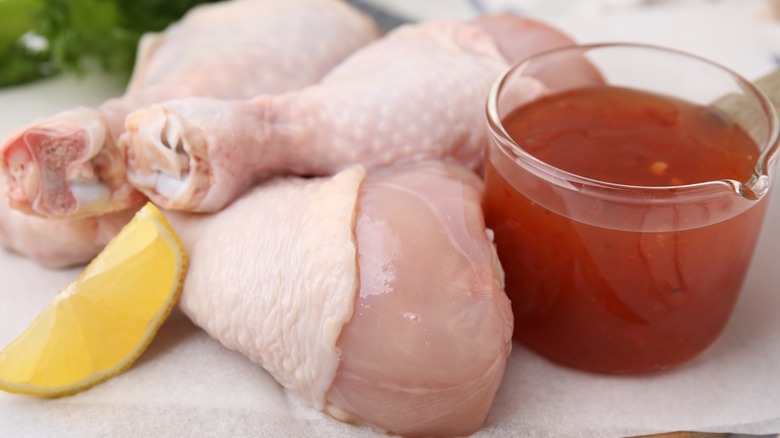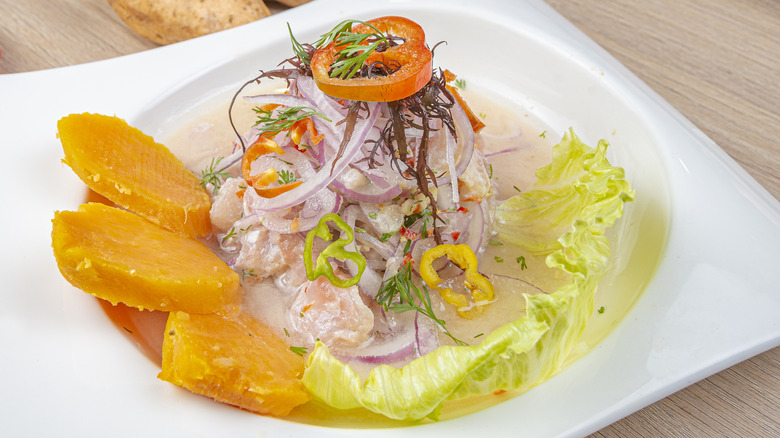Can Acidic Marinades Actually Cook Your Meat?
It's sometimes said that putting meat or seafood into an acidic marinade will effectively cook the meat: The use of lime juice in a ceviche is one example of this that can crop up. But is the presence of vinegar or citric acid in a marinade actually comparable to throwing a piece of meat in a hot frying pan? Not quite — although this idea that acid cooks meat is not totally wrong, either.
"Marinating is not the same as cooking," Kantha Shelke, a food science communicator at Chicago's Institute of Food Technologists and principal of food science firm Corvus Blue, told Chowhound. According to Shelke, marinating has a different effect than cooking with heat – marinades don't fully cook the meat.
"The acids in meat marinades partially 'cook' the meat by denaturing its proteins. This helps to tenderize it and allows flavors to penetrate deeper," says Shelke. In practice, this "denaturing" means that the proteins in the meat start to break down. Proteins can be denatured in many ways — acid does it, as does cooking with heat. Exposing food to a lot of salt can also have the same effect. In the case of a marinade, this helps to tenderize the meat by loosening up those proteins — hence why you'd especially want to marinate tough cuts of meat. Those acids also loosen up the collagen in meat, another component that makes a cut tough. Marinating isn't the only way to do this — cooking collagen-heavy meat low and slow also has a denaturing effect.
But is that acidic cooking good or bad?
You shouldn't confuse this loosening up of the proteins with cooking (much the same way you wouldn't say that meat that's brined in a lot of salt is "cooked"). Cooking food (and especially meat) to a temperature over 140 degrees Fahrenheit is essential for killing off pathogens that could make you sick. The acid in a marinade can kill off some of these pathogens, but food safety authorities note that it doesn't kill off all the possible pathogens of parasites. This is why if you're eating ceviche (which is marinated but not cooked), you'd still want to use sushi-grade seafood which is safe for eating raw. Some experts also recommend not serving this kind of raw seafood to people who are more susceptible to food poisoning, like those with weakened immune systems or who are pregnant.
Perhaps you're thinking that if you bathe your meat in an acidic marinade for long enough, it'll end up basically cooked, but this also isn't a good idea: Excessive exposure to acid will eventually just totally break down meat or seafood proteins to the point where they'll become unpalatable and mushy in texture.
The exact amount of time that meat can be marinated varies. For example, the USDA recommends not marinating meats like chicken for more than 24 hours; after two days, the acid will make it mushy; seafood should generally be marinated for shorter periods as it's more delicate.

